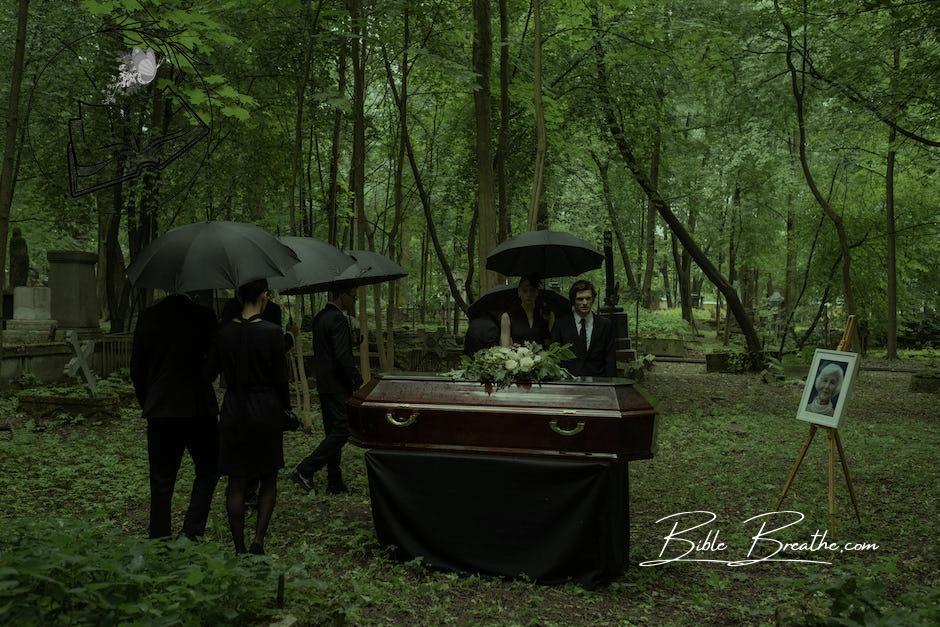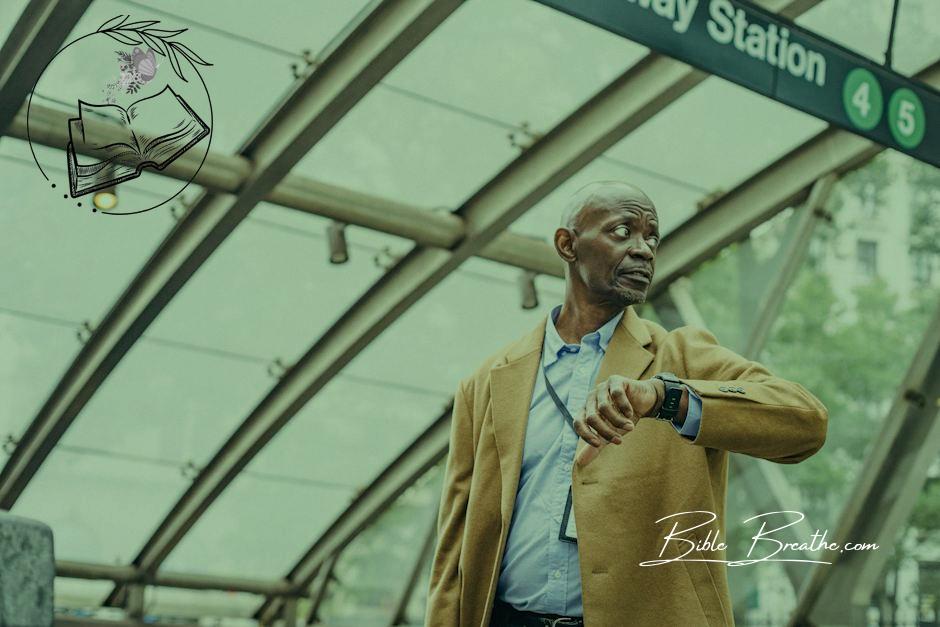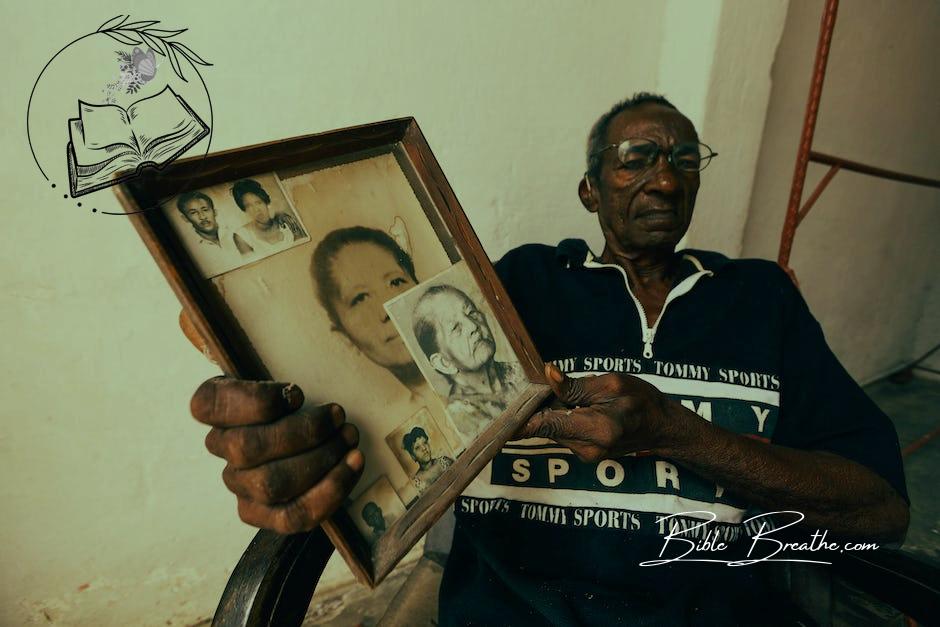How did Aaron pass on in the Good Book?
Aaron, a rock star in the biblical lineup, holds the mic as the High Priest, leading the worship.
But here’s the remix: there’s some mystery around his final act.
Was it an encore at the Golden Calf gig or a solo at Mount Hor?
Picture this: Aaron, the priest in the hood, getting through desert heat with the Israelites, dealing with drama at the Waters of Meribah, and repping the Ark of the Covenant.
He’s all about that Tribe of Levi life, blinging in those priestly garments, and laying down the sacred commandments.
Let’s unravel this script: debunk the myths, highlight the truth, and understand the man behind the myth.
Aaron’s journey is more than a tale; it’s a rhythm of faith, worship, and legacy.
Stick with us, and we’ll groove through the beats of his life!
🎤🕊️
Key Takeaways
-
Obedience to God’s Commands: Aaron’s death in the Bible serves as a poignant reminder of the importance of obedience to God’s commands. In the account of Aaron’s passing, it becomes evident that even a prominent figure like Aaron was not exempt from the consequences of disobedience. This underscores the fundamental principle that following God’s guidance is essential for all believers.
-
Aaron’s Spiritual Significance: Aaron played a vital role in Israel’s spiritual journey. As the older brother of Moses, he was chosen by God to serve as the first high priest of Israel. His actions, both faithful and flawed, shaped the religious practices of the Israelites. Aaron’s role in the construction of the Ark of the Covenant and the Tabernacle exemplifies his significance in Israel’s religious history.
-
Legacy of the Aaronic Priesthood: Aaron’s priesthood, known as the Aaronic or Levitical priesthood, left a lasting legacy. This priestly lineage continued throughout Israel’s history and was responsible for performing various religious duties, including sacrifices and offerings. The Aaronic priesthood foreshadowed the role of Jesus Christ as the ultimate high priest, highlighting the theme of redemption and reconciliation between God and humanity.
Aaron’s life and death in the Bible offer valuable lessons about faith, leadership, and the consequences of one’s actions.
His story serves as a reminder that obedience to God’s commands is paramount and that the legacy of faith can endure for generations to come.
Aaron: A Biblical Legend in Action

Photo modified by BibleBreathe.com. Original photo by Luis Quintero on Pexels
Hey, family!
Let’s dive into the awe-inspiring story of Aaron, a biblical rockstar, and his incredible journey alongside Moses.
It’s like they were the OG power duo, the Moses and Aaron show, bringing down God’s truth in the ultimate crossover episode.
The Moses and Aaron Bromance
Picture this: Moses, the smooth talker, the sea-divider extraordinaire, and his wingman Aaron, always there to back him up.
They were like the Batman and Robin of their time, tackling the challenges of the ancient world with faith as their cape.
Their friendship was the real deal, a brotherhood tighter than your favorite pair of jeans.
Moses, the voice of the operation, and Aaron, his trusted advisor, stood strong against Pharaoh’s antics, led their people through the wilderness, and kept the faith in the face of adversity.
The High Priest Gig
Now, let’s talk about Aaron’s promotion—the first High Priest of Israel!
Imagine him as the conductor of a spiritual symphony, directing the worship and rituals of the Israelites.
He was the bridge, the go-between, connecting the people with the divine.
And guess what?
He got to look after the Ark of the Covenant, like the ultimate VIP backstage pass!
The Ark was their heart and soul, carrying the Ten Commandments, God’s ultimate playlist.
Aaron had the honor of safeguarding this treasure, a responsibility he took to heart.
Even when things got tough, he held the fort, ensuring the beat of their faith never missed a note.
In a significant moment on Mount Hor, Aaron handed over the reins, passing the torch to his son Eleazar.
But his legacy, oh, it lives on!
Through the Aaronic priesthood and his descendants, his impact echoes through generations, leaving an indelible mark on the faith journey of the Israelites.
“So Moses stripped Aaron of his garments and put them on Eleazar his son. And Aaron died there on the top of the mountain. Then Moses and Eleazar came down from the mountain.” – Numbers 20:28 (ESV)
Let Aaron’s story remind us that our legacy, our influence, it lives on beyond our time.
Keep rockin’ that faith, fam!
🙌
Unveiling the Mysterious Passing of Aaron
Aaron’s journey in the Bible is filled with remarkable events, but it’s the circumstances leading to his death that truly stand out.
The Incident at the Waters of Meribah
To understand how Aaron met his end, we must rewind to an incident at the Waters of Meribah.
It’s like when you’re playing with fire, and suddenly, you get burnt.
In this case, the Israelites were wandering through the wilderness, parched and desperate for water.
They grumbled and complained, just like how a child might whine for candy at the store.
Moses, in a bit of a tough spot, turned to God for guidance.
“And the LORD spake unto Moses, saying, Take the rod, and gather thou the assembly together, thou, and Aaron thy brother, and speak ye unto the rock before their eyes; and it shall give forth his water, and thou shalt bring forth to them water out of the rock: so thou shalt give the congregation and their beasts drink.” – Numbers 20:7-8 (KJV)
Now, the twist in the tale: Instead of merely speaking to the rock as God commanded, Moses got a little carried away and struck it with his rod, not once but twice.
Water gushed forth, quenching the people’s thirst, but this act of disobedience had consequences.
God’s Command Regarding Aaron’s Death on Mount Hor
It’s like when you break a vase and realize it’s irreplaceable.
God was upset with Moses and Aaron for their disobedience at Meribah.
As a result, He pronounced a harsh judgment on them.
Moses was told he wouldn’t enter the Promised Land, and Aaron received a unique fate.
God said to Moses,
“And the LORD spake unto Moses and Aaron, Because ye believed me not, to sanctify me in the eyes of the children of Israel, therefore ye shall not bring this congregation into the land which I have given them.” – Numbers 20:12 (KJV)
Aaron’s destiny was sealed on Mount Hor.
It’s like an unwelcome farewell.
God instructed Moses to take Aaron and his son, Eleazar, up the mountain.
There, in the sight of the entire congregation, Aaron was to be stripped of his priestly garments and pass them on to Eleazar.
Imagine it like a king abdicating his throne to his successor.
As Aaron’s high priestly garments were transferred, he peacefully passed away, ending his journey in the wilderness.
Aaron, the High Priest of Israel, left an indelible mark on the history of the Israelites.
His legacy continued through the Aaronic priesthood and the religious practices established during the Exodus, making him an integral part of the Israelite worship.
In summary, Aaron’s passing was a consequence of the incident at the Waters of Meribah and God’s command on Mount Hor.
It serves as a lesson in obedience and the gravity of one’s actions, even for great leaders like Aaron.
How Aaron Passed the Baton: A Biblical Tale

Photo modified by BibleBreathe.com. Original photo by Dom J on Pexels
Now, picture this, my friends, like a winding road up a majestic mountain.
Aaron, a faithful servant of the Lord, was on the cusp of something extraordinary as he climbed Mount Hor.
His life, filled with dedication and trials, was reaching a monumental moment.
But how did Aaron, the brother of Moses, find his peaceful rest?
The Hike to Mount Hor
Think about it like a thrilling adventure, a hike with a destination beyond the clouds.
As Aaron ascended Mount Hor, he must’ve felt a mix of excitement and reflection.
This journey marked the transition of his sacred duties and the gateway to eternity.
Passing the Sacred Robes to Eleazar
Now, imagine this like a passing of a torch, a relay race where the baton represents a sacred responsibility.
Aaron, draped in his priestly robes, symbolized the culmination of his service.
But it was time to hand over the reins.
His son, Eleazar, was ready to take on the role of the Aaronic priesthood.
The exchange of these holy garments signified the continuity of their divine service.
Aaron’s Tranquil Farewell
In this tranquil moment, with the sun painting the sky in shades of orange and pink, Aaron found his peaceful rest.
The trials of the wilderness and the heavy mantle of leadership were behind him.
His journey was complete, and he crossed into eternity with a heart full of contentment.
Aaron’s passing wasn’t marked by turmoil but by the tranquility of a life well-lived.
Aaron’s story speaks to us about passing the baton, handing off responsibilities, and finding peace in a life dedicated to a higher calling.
Just as Aaron entrusted the priestly garments to Eleazar, we too must consider the legacies we pass on and the lives we touch during our time on this earth.
And Aaron the priest went up into Mount Hor at the commandment of the Lord, and died there, in the fortieth year after the children of Israel were come out of the land of Egypt, in the first day of the fifth month.” – Numbers 33:38 (KJV)
Aaron’s journey reminds us that even in our final moments, there’s purpose, a relay of the divine calling, and the sweet serenity of a life well-lived.
Aaron’s Legacy: Understanding His Passing and the Aftermath

Photo modified by BibleBreathe.com. Original photo by cottonbro studio on Pexels
Alright, family, let’s dive into the story of Aaron, a man chosen and anointed for a purpose, navigating the twists and turns of the Israelites’ journey through the wilderness.
When it was his time to transition to glory, it was a pivotal moment for the nation of Israel.
Mourning the Loss: A Thunderous Silence
Imagine the shockwave that rippled through the hearts of the Israelites when they received the news of Aaron’s passing.
This wasn’t just about a priestly figure.
Aaron was a rock, a leader, a foundation.
His departure left a void that echoed like a thunderous silence.
The people mourned.
They wept for the man who had been there in the highs and lows, the victories and defeats.
They honored his life, his dedication, and his unwavering obedience to God.
In this time of mourning, the Israelites reflected on the journey they had shared with Aaron.
It was a moment to look back, remember the struggles, the triumphs, and the divine guidance that had been their compass.
A New High Priest Emerges: Passing the Torch
Now, in the midst of this grief, a new chapter was unfolding.
Enter Eleazar, Aaron’s son, chosen to step into those sacred priestly shoes.
Just like a relay race, the baton was passed, ensuring that the divine work Aaron had begun would continue.
Eleazar took up the mantle, the anointing, and the responsibility, ready to walk in his father’s footsteps.
God’s plan was at work.
The mantle of leadership transitioned seamlessly, embodying the continuation of the Aaronic priesthood.
The legacy of Aaron lived on through Eleazar, who led the people on their journey toward the promised land.
In the face of Aaron’s departure, God’s grace and wisdom shone brightly.
Yes, there was grief, but there was also assurance.
Assurance that God’s plan was unshakable, His covenant unwavering.
The story of Aaron’s life continued to guide and shape the destiny of the Israelites as they pressed on.
“And Eleazar the son of Aaron the priest shall be chief over the chief of the Levites, and have the oversight of them that keep the charge of the sanctuary.” – Numbers 3:32 (KJV)
Aaron’s Role in the Golden Calf Incident: A Biblical Tale of Impatience and Idolatry

Photo modified by BibleBreathe.com. Original photo by Ono Kosuki on Pexels
In this ancient tale that echoes through the corridors of time, we encounter a moment of misstep, a stumble in the desert sands, revealing the impatience of the people and their drift into idol worship.
This episode is more than a story; it’s a lesson etched in the annals of faith.
Impatient Hearts and the Temptation of the Golden Calf
Imagine waiting at a bus stop, your ride delayed, and impatience crawling under your skin like ants on a mission.
That’s how the Israelites felt, waiting for Moses to descend from the mountain where he communed with God.
The waiting game wasn’t their strong suit, and their patience wore thin.
“And when the people saw that Moses delayed to come down out of the mount, the people gathered themselves together unto Aaron, and said unto him, Up, make us gods, which shall go before us; for as for this Moses, the man that brought us up out of the land of Egypt, we wot not what is become of him.” – Exodus 32:1 (KJV)
Their anxious hearts led them to Aaron, Moses’ brother and a revered figure among them.
They needed something they could grasp, something to hold on to.
They wanted a god they could see, touch, mold—a god of their own making.
And in that anxious moment, Aaron, feeling the weight of their impatience, wavered.
Aaron’s Complicity and Its Consequences
Aaron, a high priest and a respected leader, carried a heavy responsibility.
Yet, in this critical moment, the weight of their impatience swayed his judgment.
He gave in to their impulsive demand, instructing them to gather their gold jewelry, from which he fashioned a molten calf—a throwback to Egyptian idolatry.
“And he received them at their hand, and fashioned it with a graving tool, after he had made it a molten calf: and they said, These be thy gods, O Israel, which brought thee up out of the land of Egypt.” – Exodus 32:4 (KJV)
In his acquiescence, Aaron set off a chain of events that shook the very foundations of their faith and their relationship with God.
Divine wrath was kindled, a reckoning ensued for the people’s waywardness, and Aaron faced the consequences of his lapse.
This tale is a mirror to our souls, reflecting the frailties of our resolve and the tests that faith endures.
It reveals Aaron’s moment of weakness in the face of impatience and the allure of idol worship.
It’s a reminder that even the most revered among us can stumble, underscoring the importance of unwavering faith and steadfastness in upholding the true essence of our belief.
Aaron’s Legacy and Descendants: A Divine Symphony

Photo modified by BibleBreathe.com. Original photo by Mehmet Turgut Kirkgoz on Pexels
Hey there, fam!
Let’s dive into the story of Aaron, a man handpicked by the Almighty, destined to leave an everlasting mark on the story of faith.
Keeping the Priestly Fire Burning
Oh, Aaron, he wasn’t just a guy.
No, siree!
God picked him out and said, “You, my man, are going to be the bridge between heaven and earth.” Can you imagine that?
He wore those priestly robes and stood tall in the presence of God, making sure the connection stayed strong.
When Moses had that divine heart-to-heart on Mount Sinai, God pointed at Aaron and said, “You’re going to be my go-to guy for all things sacred.” So, Aaron steps up, accepts the mission, and takes on the role of a high priest.
He offered the sacrifices, did the rituals, and made sure the people could commune with the Divine.
The Legacy Lives On: Meet the Priestly Squad
Now, let’s talk about Aaron’s kids and grandkids—talk about keeping it in the family, right?
Eleazar and the sons of Aaron carried on that priestly torch.
They held the holy gear, performed the rituals, and carried forward the legacy.
It was like a sacred relay race, passing the baton from one generation to the next.
When the Israelites were parched in the desert, Aaron stood by Moses, following God’s lead.
God said, “Speak to the rock,” and water gushed out, quenching the thirst of a whole nation.
It’s a bit like when you’re at a concert, and the band hits that perfect note, and the crowd goes wild—that was Aaron, hitting the right notes at the right time.
“And Aaron the priest went up into Mount Hor at the command of the LORD, and died there…” – Numbers 33:38 (KJV)
Now, Aaron eventually climbed Mount Hor, and there, in the embrace of God’s plan, he passed on.
But guess what?
The priesthood didn’t end.
It was like passing the mic to the next rapper in a freestyle—they kept the flow going, making sure the fire of worship and connection blazed on.
Aaron’s story isn’t just an ancient tale; it’s a message for us today.
Our actions, our faith, they’re like ripples in a pond, affecting those around us.
Aaron’s legacy teaches us that what we do today echoes through generations.
So, let’s be that positive ripple, passing on the flame of faith and love, lighting up the lives of those around us.
🌟
Frequently Asked Questions (FAQs) About How Did Aaron Die In The Bible
Where did Aaron die according to the Bible?
According to the Bible, Aaron died on Mount Hor, as recorded in Numbers 20:28.
He was succeeded by his son, Eleazar, as the high priest.
Why was Aaron not allowed to enter the Promised Land?
Aaron was denied entry to the Promised Land due to his involvement in the incident at Meribah, where he and Moses disobeyed God’s instructions when providing water to the Israelites.
This act led to God’s decree that neither Aaron nor Moses would enter Canaan.
How did the golden calf incident influence Aaron’s fate?
Aaron played a role in making the golden calf, a symbol of idolatry, leading the Israelites away from God.
Despite this, Aaron was later chosen as the high priest, demonstrating God’s forgiveness and grace, emphasizing the potential for repentance and redemption.
Matt Turner
I’m Matt, and I love breaking down Bible verses in a way that’s easy to understand and apply to everyday life. My goal is to help you connect with God’s Word and find practical ways to live it out. Whether you’re new to the Bible or just looking for some fresh insights, I’m here to walk with you and share what I’ve learned along the way.

